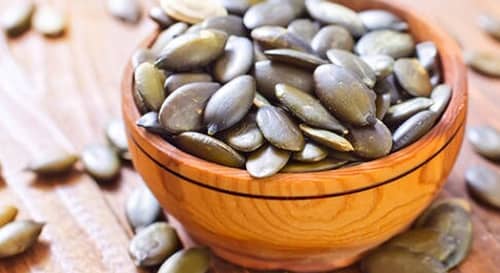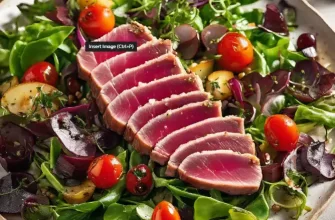Zinc is a crucial element that has a significant impact on various functions within the body. It supports the immune system, aids in growth and development, and offers numerous benefits. In this article, we will explore eight important advantages of incorporating zinc into your diet.
- Enhanced Immune Function: Zinc is well-known for its ability to enhance the immune system. It supports a stronger response by the immune system against harmful organisms, thus lowering the chances of getting infections. Consistently including zinc-rich foods or taking supplements can help maintain a strong immune system.
- Improved Wound Healing: Zinc promotes the creation of collagen, an essential protein for healing wounds. It assists in repairing tissues and lessening inflammation, consequently speeding up the healing journey. Including zinc in your diet can be especially advantageous for those going through post-surgical or injury recovery.
- Healthy Growth and Development: Zinc plays a crucial role in cell division and proper growth and development. It is necessary for DNA synthesis, protein production, and the functioning of enzymes. Adequate zinc intake is crucial during periods of rapid growth, such as childhood and adolescence.
- Healthy Skin and Hair: Zinc is often associated with healthy skin and hair. It helps regulate oil production, preventing acne and other skin conditions. Additionally, zinc promotes the production of keratin, a protein that strengthens hair follicles and promotes hair growth.
- Boosted Cognitive Function: Zinc is involved in several cognitive processes, including memory, learning, and attention. It supports neurotransmitter functions in the brain, helping to improve cognitive performance and overall mental well-being.
- Regulated Blood Sugar Levels: Zinc contributes to insulin metabolism and helps maintain optimal blood sugar levels. Adequate zinc intake can aid in the prevention and management of diabetes by improving insulin sensitivity.
- Improved Fertility: Zinc is essential for reproductive health, especially in men. It increases testosterone levels, sperm quality, and motility. In women, zinc helps regulate hormone levels and supports the development of healthy eggs.
- Antioxidant Support: As an essential element for antioxidant enzymes, zinc helps fight harmful free radicals in the body. It acts as a powerful antioxidant, which can protect cells from oxidative stress and reduce the risk of chronic diseases.
It is quite simple to add zinc-rich foods to your meals. Good sources of zinc include lean meats, fish, beans, nuts, seeds, and whole grains. But if you find it difficult to consume enough zinc through your diet, you can easily find zinc supplements.
It is crucial to understand that although zinc has multiple advantages, consuming too much can be harmful. It is advised to talk to a healthcare expert to establish your zinc needs and prevent any possible issues.
10 Foods Rich in Zinc to Boost Your Health
Here are 10 foods that are packed with this important mineral:
- Oysters: Oysters are known for their high zinc content, making them a top choice for boosting your intake. Just six medium-sized oysters can provide up to 32 milligrams of zinc, which is more than four times the recommended daily intake for adults.
- Beef: Beef is not only a great source of protein but also an excellent source of zinc. A three-ounce serving of cooked beef can contain around 5-7 milligrams of zinc, depending on the cut.
- Pumpkin Seeds: These small but mighty seeds are not only delicious but also packed with zinc. Just one ounce of pumpkin seeds can provide close to 2 milligrams of zinc, making them an easy snack to incorporate into your diet.
- Lentils: Lentils are a versatile legume that can be added to soups, stews, or salads. Besides being rich in fiber and protein, one cup of cooked lentils contains around 2 milligrams of zinc.
- Cashews: Cashews are not only a great snack but also a good source of zinc. A quarter cup of cashews can provide approximately 2 milligrams of zinc, along with other beneficial nutrients.
- Chickpeas: Chickpeas, also known as garbanzo beans, are rich in both zinc and fiber. One cup of cooked chickpeas contains about 2 milligrams of zinc, making them a fantastic addition to your diet.
- Yogurt: Yogurt is not only an excellent source of probiotics but also contains zinc. One cup of plain yogurt can provide around 1.5 milligrams of zinc while being low in calories.
- Quinoa: This ancient grain is not only a great source of plant-based protein but also a good source of zinc. One cup of cooked quinoa contains approximately 2 milligrams of zinc, making it a nutritious addition to meals.
- Spinach: Popeye’s favorite leafy green is not only rich in iron but also contains some zinc. Including spinach in your diet provides multiple health benefits, as it is a nutrient-dense vegetable.
- Dark Chocolate: Yes, you read that right! Dark chocolate contains a small amount of zinc, along with various other minerals and antioxidants. Just one ounce of dark chocolate provides approximately 0.9 milligrams of zinc.
Ensure your body receives this essential nutrient, and reap the rewards of improved immunity, wound healing, cognitive function, and overall well-being.









